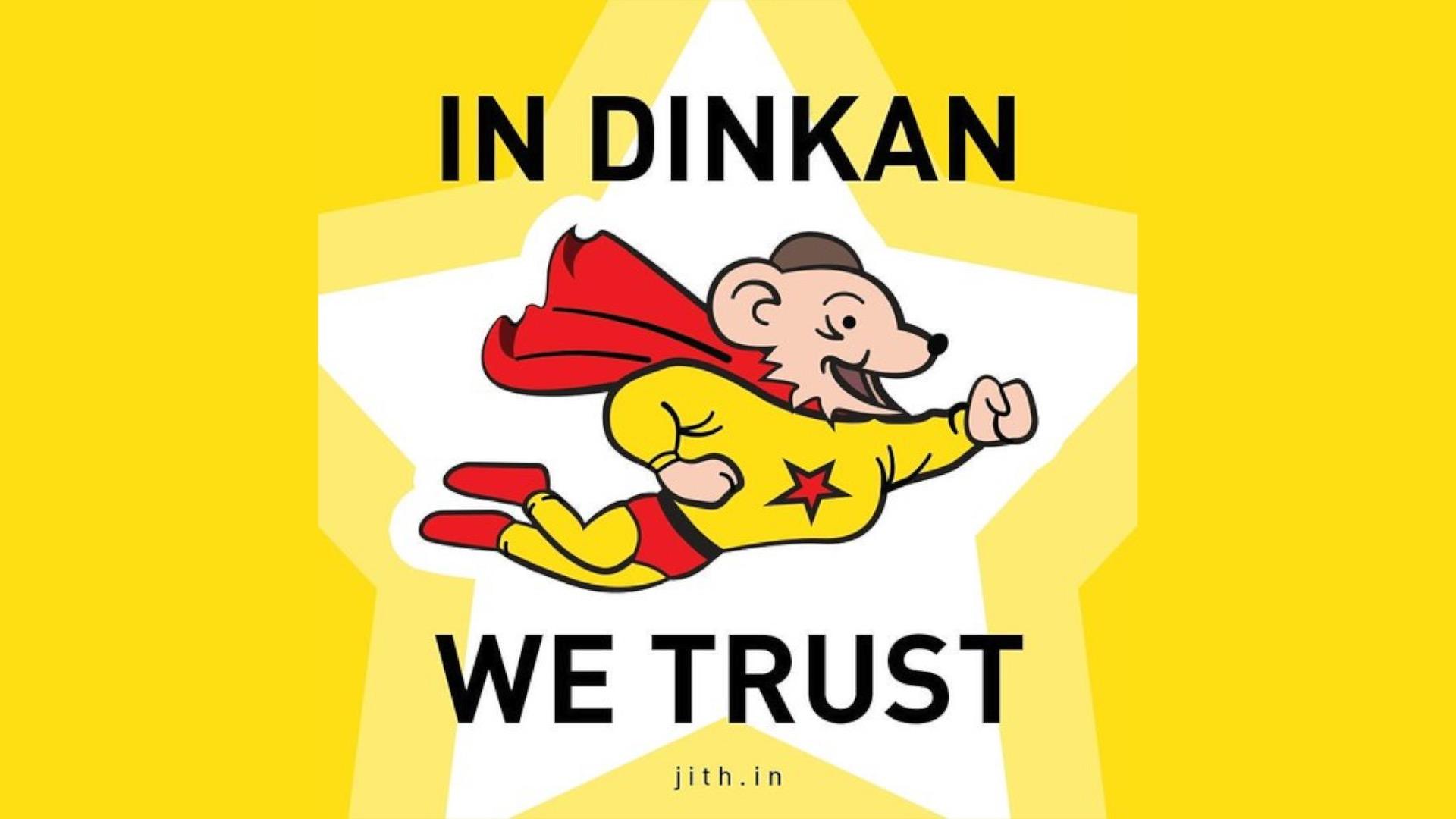Ravi Kumar Atheist: The Indian man fighting to be godless
- Published
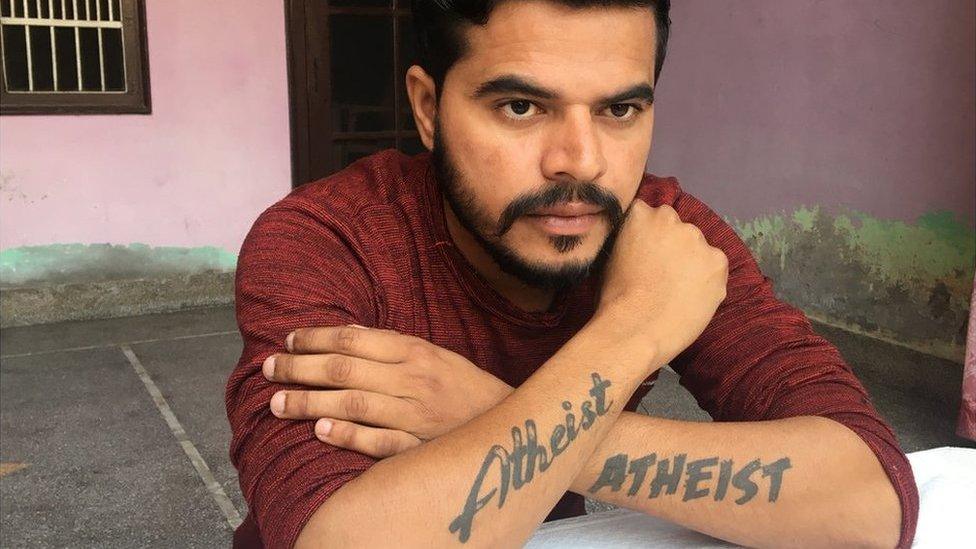
An Indian man is fighting for the right to believe in the non-existence of God. But Ravi Kumar's quest for a document granting him legal recognition for his status has got him into trouble with the authorities. The BBC's Geeta Pandey reports from Tohana village in northern India.
With two large tattoos that declare him to be an "atheist" covering his forearms, 33-year-old Ravi Kumar says he realised there was no God when he was just six or seven.
"On Diwali every year my father bought a lottery ticket and prayed to the Goddess Lakshmi but he never hit the jackpot. And then one day, four boys were beating me up and I prayed to Lord Krishna for help, but he didn't come to my rescue," he says.
Sitting at his two-room home in Tohana, about 250km (155 miles) from the capital, Delhi, he shows me his "most prized possession" - a certificate that says he belongs to "no caste, no religion and no God".
Issued on 29 April on a Haryana government letterhead, it is signed by a local Tohana official.
But unfortunately for him, the authorities revoked it a week later - they said they had "exceeded their jurisdiction" and asked him to return it.
Ravi Kumar refused and instead filed an appeal in the Punjab and Haryana High Court.
In September, the high court dismissed his petition. The judge said that Article 25 of the constitution guaranteed him "the right to claim that he is an atheist" but that there really was no legal requirement for such a certificate.
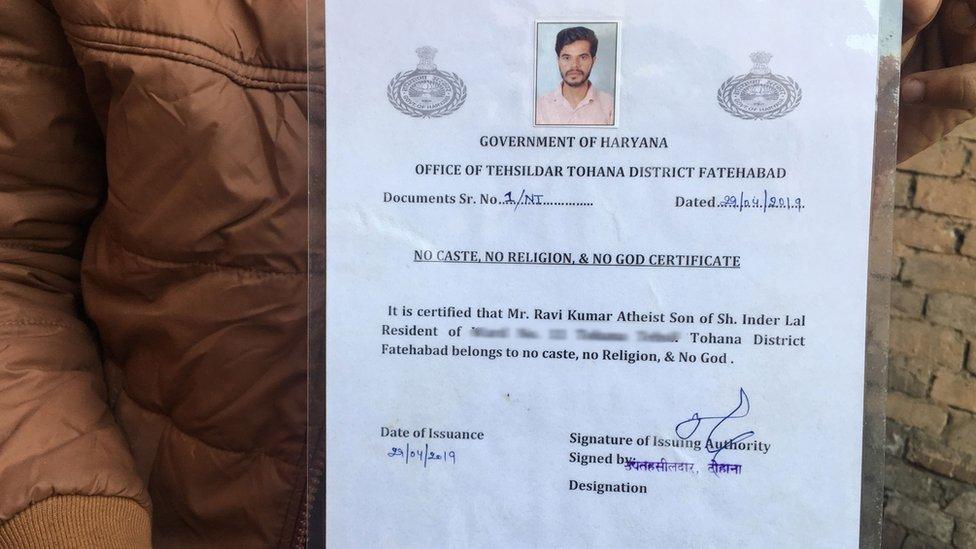
A college dropout who makes a living by painting houses, Ravi Kumar says he's not giving up - he is preparing to appeal against the high court ruling and has also written to the Indian president seeking his help.
"The high court says there is no need for me to have a certificate, but there is," he insists. "When the government issues religion or caste certificates to people, I too have the right to have a certificate that identifies me as an atheist. I'm also a citizen of this country."
In India, you need a religion certificate only if you change your faith. And caste certificates are given to those who belong to disadvantaged groups and would like to avail of the quota in government jobs or universities.
Ravi Kumar's family does belong to a disadvantaged caste grouping but he's sworn that he will never sign up for any benefits.
The reason he wants his certificate is essentially to make a statement.
The role of religion in Indian business
It was in September 2017 that he began the legal process by filing a plea in a local court, asking that he should be allowed to use atheist as the last element in his name.
Three months later, on 2 January 2018, the civil judge ruled in his favour: the order said he had the right to be identified as "Ravi Kumar Atheist" in his official records.
After he had his name changed in his school leaving certificate, his birth certificate, national identity card and bank cards, he approached the authorities for a "no caste, no religion and no God certificate".
And he got one.
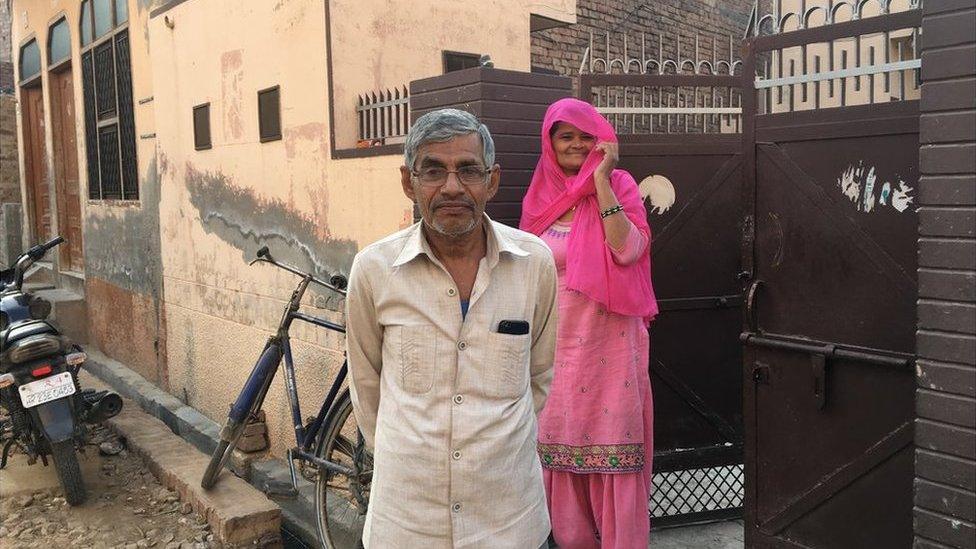
Ravi's parents say they no longer visit temples or perform any religious rituals
But once his story was reported by news channels, the officials realised that they had "exceeded their jurisdiction" - and said it was not for them to say whether God existed or not.
They asked him to return the document and promised to replace it with a modified one describing him as a caste-less atheist - which he refused.
According to census data, 33,000 Indians identify themselves as atheists - a mere handful in a country of 1.3 billion.
Religion and religious identity dominate most aspects of life in India, especially in the past decade with an upsurge in Hindu nationalism, and most atheists keep their beliefs to themselves. Speaking out of turn can be dangerous - many complain of being shunned by friends and family and, in an extreme case in 2017, an outspoken atheist and rationalist was hacked to death in southern India, external.
But Ravi Kumar literally wears his belief, or the lack of it, on his sleeve, in the form of tattoos and the word atheist that he has taken on as his surname.
He also openly challenges the existence of God and, whenever an opportunity presents, he asks people to shun religion.
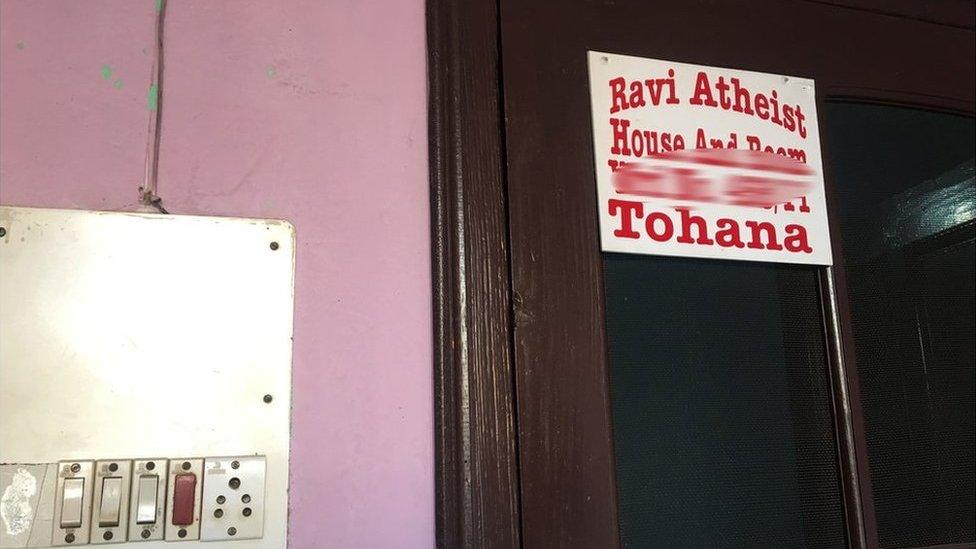
The name plate outside his door identifies him as Ravi Atheist
"No-one has been able to prove the existence of God," he says, adding, "because there IS no God. God is man's creation. God doesn't exist. It is just a word."
Ravi Kumar grew up in a fairly religious home: his parents and grandfather were devout Hindus who would visit temples and perform rituals on religious festivals.
"My father took me to temples and as a child I went in because I was curious to see what was there."
His mother would tell him that they worshipped Goddess Lakshmi on Diwali so that they would become prosperous, and his grandfather who had read the Hindu holy book Gita told him that Lord Krishna would save him if he was ever in trouble.
As he grew older, he says he became aware that "religion and caste differences were being used by politicians and religious leaders to fool people and prey on their weaknesses".
He tells me he hasn't visited a temple in almost 20 years and argues that the money spent on temples, mosques and other religious institutions would be better spent building schools and hospitals.
For his belief in atheism, he says he was picked on during his school and college years and that he also lost work opportunities. Many friends and relatives shunned him and his neighbours called him crazy. He says he's still single because no family is willing to give their daughter to a man who doesn't believe in God and wants to marry not according to religious practices but in a court.
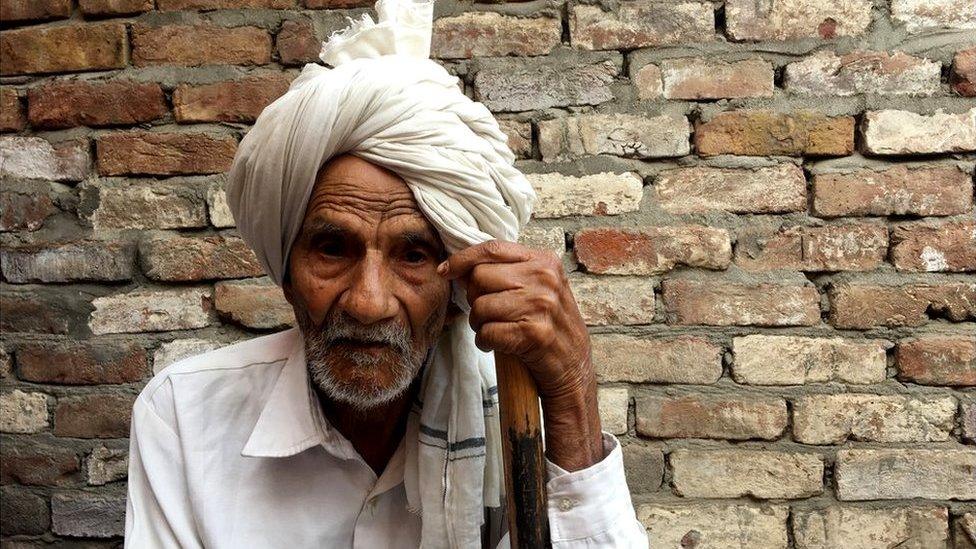
Ravi's grandfather Dayala Ram told him Lord Krishna would save him if he was ever in trouble
His parents tell me initially they also found his lack of belief unpalatable. His father, Inder Lal, who works as a carpenter in a factory, says he felt hurt and humiliated when people called his son nastik (atheist). "I once felt so upset that I left home thinking I would kill myself, but then I changed my mind and came back."
But now, he's a convert to atheism too. "I see his point. Now we don't do any religious rituals at home. We have also stopped going to the temple."
In the past two years, as the local press has reported his fight to be legally recognised as an atheist, Ravi Kumar has been transformed into a minor celebrity.
"People call me from faraway places, some even visit me - they say they're atheists too, some say like me they too want to take atheist as their surname."
Ravi Kumar says his atheism has convinced him that much of the world's problems are rooted in religion.
"India and Pakistan use religion to justify conflict, the world is on the brink of World War Three. People say they believe in religion, but they lie 24 hours a day, they think bad thoughts, they use swords and guns to kill and maim. There is so much unhappiness in the world.
"I ask, if God created the world, why did he create so much pain and suffering?"

You may also be interested in...

Read more from Geeta Pandey
- Published20 January 2013
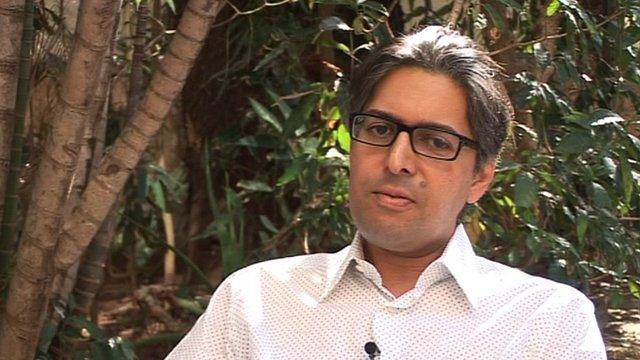
- Published11 April 2016
